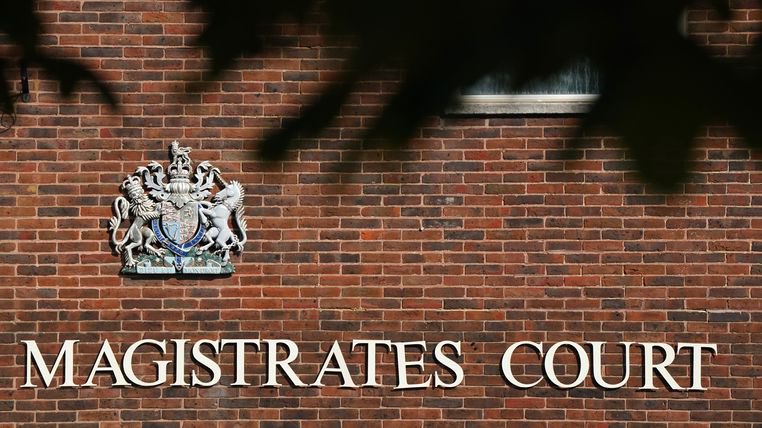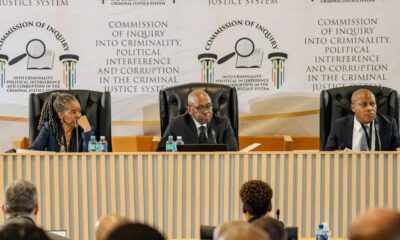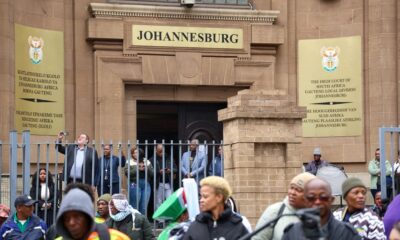News
Justice Minister Unveils Bold Steps to Clear Magistrates’ Court Backlogs

Can South Africa finally fix the delays keeping justice out of reach?
If you’ve ever sat in a crowded magistrates’ court gallery, you know the frustration: case after case postponed, victims waiting for closure, accused waiting for their day in court. In some courts, matters drag on for months or even years.
Now, Justice and Constitutional Development Minister Mmamoloko Kubayi says enough is enough. She has laid out a package of measures designed to untangle the mess in the country’s busiest courts—and bring long-overdue relief to South Africans who feel trapped in a system of endless delays.
A New Committee, A New Approach
At the heart of the plan is the National Case Backlogs Committee, a task team that brings together just about every key player in the justice chain: the judiciary, the National Prosecuting Authority, Legal Aid, SAPS, Correctional Services, and even the Office of the Chief Justice.
Kubayi says the logic is simple: the courts don’t work in silos. A backlog isn’t just about a missing magistrate—it could be a late docket from the police, an unavailable interpreter, or legal representation not arriving on time. By forcing everyone into the same room, the committee hopes to tackle bottlenecks in real time instead of letting them pile up.
Language Matters: The Interpreter Shortage
One of the less obvious but critical stumbling blocks in magistrates’ courts is language services. Without interpreters, trials can’t go ahead, and backlogs balloon.
To fix this, the department has already appointed 1,824 interpreters nationwide, including 20 trained in South African Sign Language. More are on the way: 85 interpreter posts were recently advertised, with 66 more set to follow in August 2025.
For a country with 11 official languages and a justice system that relies heavily on accurate translation—this is more than just an HR exercise. It’s about making sure justice is truly accessible to everyone, in every language.
Filling Empty Benches
The other major obstacle? Vacant magistrate posts. Without enough magistrates, even the best-organised court grinds to a halt.
To plug the gap, the Magistrates’ Commission advertised 139 positions late last year, ranging from regional court magistrates to senior posts responsible for quality assurance. Almost 900 applications poured in. Interviews for regional magistrates wrapped up in May, while senior magistrate shortlisting is set for July, with interviews in August and September.
In the meantime, acting magistrates are being brought in to keep cases moving, a stopgap measure, but one that provides some relief.
A 100 Days Challenge Against Delays
Perhaps the most eye-catching part of Kubayi’s plan is the 100 Days Challenge, launched as a pilot in March 2025.
The challenge is laser-focused on gender-based violence, sexual offences, domestic violence, divorce, and maintenance cases, areas where delays don’t just waste time, but actively endanger lives and families.
The goal is to strip away unnecessary procedures, test new ways of managing cases, and bring them to resolution faster. If successful, the department plans to roll it out in phases nationwide, alongside the introduction of new Sexual Offence Systems to speed up case handling.
Can It Work?
South Africans are right to be skeptical. Court backlogs have been a talking point for decades, with victims and accused alike losing faith in a justice system that moves at a snail’s pace.
But there is cautious optimism. On social media, some lawyers have welcomed the focus on interpreters, calling it “a long-overdue fix.” Others remain wary, pointing to the culture of inefficiency in state departments that has derailed well-meaning initiatives before.
What’s clear is that the stakes couldn’t be higher. As Kubayi herself acknowledged in Parliament, justice delayed is justice denied.
A Step Toward Restoring Faith
Whether these measures succeed will depend on more than just committees and job adverts. It will require a cultural shift across the justice system: cooperation, urgency, and a recognition that every delay has a human cost.
For now, though, there is at least a plan on the table and for thousands of South Africans waiting for their cases to be heard, that’s a start.
South Africa’s magistrates’ courts are drowning in backlogs, but new measures, from interpreter hires to the 100 Days Challenge offer a glimmer of hope. If implemented effectively, they could help restore faith in a justice system that ordinary people desperately need to work.
{Source: IOL}
Follow Joburg ETC on Facebook, Twitter , TikTok and Instagram
For more News in Johannesburg, visit joburgetc.com



























